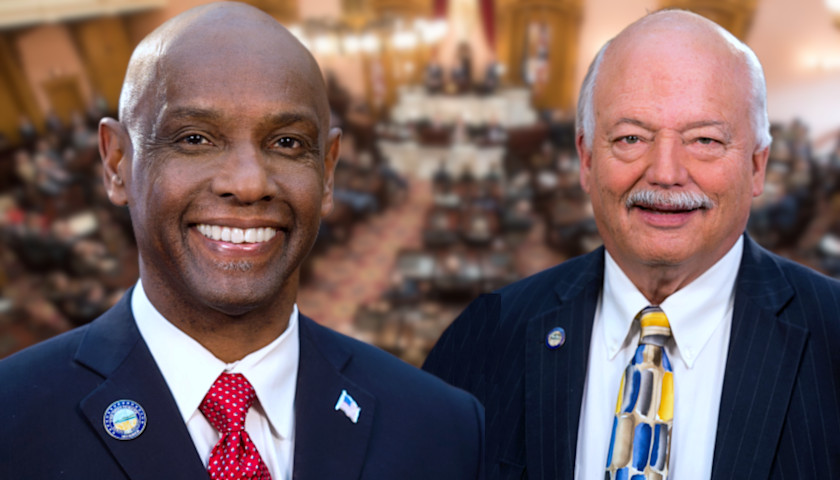by Todd Defeo
State senators debating the biennial budget could soon consider proposals to increase funding for direct service professionals, food banks and public schools throughout the state.
Earlier this month, the Ohio House voted 85-9 to approve House Bill 166, a nearly $68.9 billion, two-year state spending plan. Senate Democrats, in particular, seized the opportunity this week to outline many of their desired changes to the spending bill.
The spending plan removes the income tax for Ohioans who earn less than $22,250 per year and reduces income tax rates by 6.6 percent for the remainder of Ohio’s residents. It also includes a pay increase for direct service providers, eliminates a corporate jet timeshare tax exemption and increases the minimum age to buy tobacco in the state from 18 to 21 years old.
“We, obviously, have some bipartisan agreement on a lot of concerns,” state Sen. Cecil Thomas, D-Cincinnati, said during a Senate Finance Committee meeting.
Among the amendments state senators could consider is one that centers on how to enforce the proposed increase of the age to buy cigarettes. A change could focus on punishing retailers that sell to underage buyers rather than the purchasers, state Sen. Bob Hackett, R-London, said during the hearing.
Thomas said Democrats would push an amendment to change the state’s Pregnancy Associated Mortality Review Board so that 80 percent of the board have subject matter expertise. They also want the board to issue an annual report rather than once every three years.
Democrats also want to spend an additional $10 million in Temporary Assistance for Needy Families (TANF) funds for food pantries so they can serve more meals, offer healthy options and upgrade their storage facilities.
“As donations continue to decline, it is time for the state to step up and help fight hunger,” Thomas said. “Making Ohioans food secure is more than just supporting our food banks. However, we also must make sure everyone has access to fresh, affordable foods.”
Senate Democrats also want to increase pay to $15 per hour for direct service professionals and $10 per hour for overnight on-call professionals, Thomas said.
“Many of these people were born to take care of others. It’s their dream,” Thomas said. “Unfortunately, their dreams collide with harsh economic reality. Current payment levels have not kept up with the cost of living, and working in this field has become impossible for some.”
But the most significant point of discussion may center on school funding since the so-called “Fair School Funding Plan,” a formula to overhaul how the state funds public schools, did not make the version of the bill the House passed.
“Unfortunately, the budget fails to take corrective action on the unconstitutional foundation funding formula and even holds growing schools and career tech programs back,” state Sen. Vernon Sykes, D-Akron, said. “We should finish the work that will make the Fair School Funding Plan whole to ensure equitable and adequate funding for all our schools.”
– – –
Todd DeFeo is a contributor for The Center Square.
Background Photo “Ohio Chambers” by Mike DeWine.




